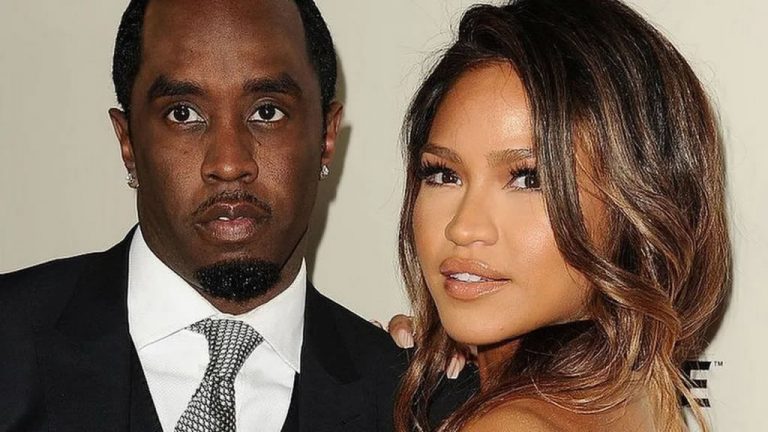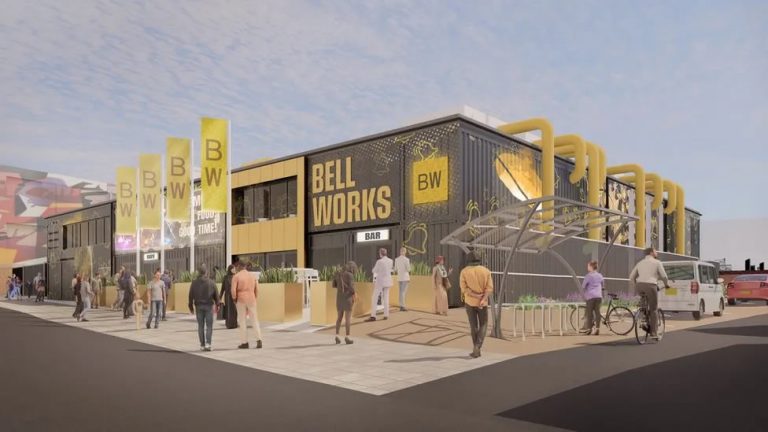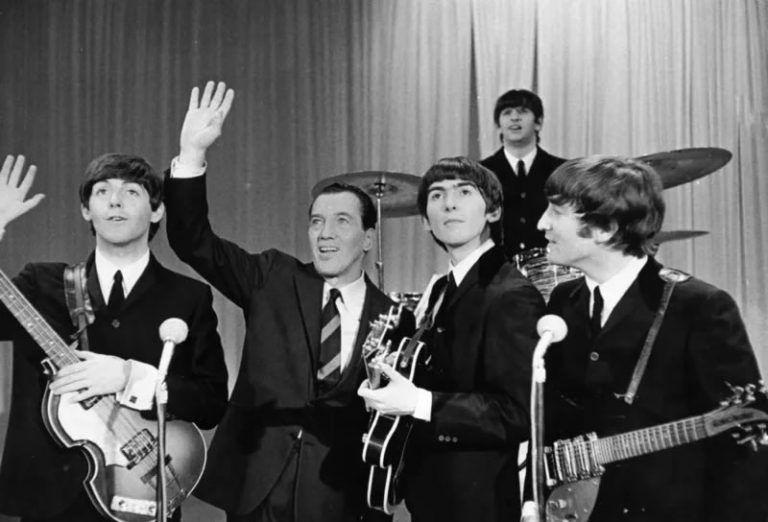
Like many parents have done during the coronavirus pandemic, O’Brian Banner turned to social media to stay sane — as did his husband and their close-knit group of other Black gay dads, who joined their creative forces in April to create a video (below), celebrating their families and their bond, for Easter and as part of a TikTok “Don’t Rush Challenge.”
But the joy radiated by the “Black Gay Dads Edition” makes it perfect for yet another holiday: Father’s Day. In honor of that, Yahoo Life spoke to some of the dads featured in the video, which has since blown up across social media platforms. They reflected on the meaning of the day, particularly during these extra-intense parenting times of the swelling Black Lives Matter movement, LGBTQ Pride Month and a pandemic.
O’Brian Banner and Daryl Fields
Dads to 3-year-old twins, Keithen and Camden Bannerfields, Maryland

From O’Brian, who works as a special assistant to Washington, D.C., Mayor Muriel Bowser —
On the importance of Father’s Day: “It’s special and important for me because I didn’t have a constant father figure growing up. … Ultimately, it’s just the constant celebration that we now have the ability to offer that, and let our backgrounds influence how we raise our children as best we can.” He adds, “To me, Father’s Day is a celebration of the gift of being able to have kids.”
On being Black fathers in America: “We’ve been blessed and fortunate that they are still a little young, so they don’t have a lot of questions. … We live in an area that’s predominantly African American and pretty affluent, so they constantly see people that look like them in powerful positions … and their friends are very diverse. But there will come a time we have to talk about it…”
“I think that as an African American culture, we get so used to internalizing things, and taking it and taking it and never letting it out. … My job created a space where everybody could talk. I didn’t realize until it was my turn to start talking how emotional it made me … I was emotional, it made my coworkers cry, I said: ‘It might be a little too raw right now.’ Everything [upsetting] I saw, before the kids, I put on me — thank gosh it’s not me. But now everything I see is a reflection of what could happen to my kids. I’m constantly worried about that. That’s where the emotion came from.
“Right now, I can hover, and they have this huge support system and I just want to make sure we keep that going. … At the end of the day, all we can do is give them the resources they need … give them the know-how, and basically, at the end of the day, we leave them with a prayer.”
On being gay dads in America: “We were worried about it, but the neighborhood we live in is extremely gay-friendly, we’ve been blessed. … Though our first experience [with homophobia] was with schools, we were taking them to different ones, and a lot in the area are private-religious and had the issue that it was two dads. But they would find clever ways to say it, like … they weren’t sure how our family dynamic would fit in. Our thing was, that’s your loss. Our kids are brilliant, I might be biased, but they would only help your school, and if you can’t look past who we love and who we marry, then that’s not a good school anyway.”
Richard and Carlos Seigler-Carter
Dads to Timothy Seigler-Carter, 3, Orlando, Fla.

From Richard, who works as an education consultant —
On the importance of Father’s Day: “I didn’t grow up with my dad. I never met him. We try to make it a point … to avoid some of the individual traumas that we felt as a result of our fathers being absent. … And making the commitment when we adopted our son, to honor him and make sure we are providing [the] best resources possible, and all the love that he needs to know he belongs. I think [Father’s Day] is a renewed commitment every year. … And it’s also a day to reflect on fathers or father figures we have lost or never met.”
On being Black fathers in America: “We always recognize that we’re both visibly Black men raising a sort of racially ambiguous child, and although our son is Black and Puerto Rican, he doesn’t present as Black. It’s a reminder for us that we have to not only protect but educate him about his culture and birth parents and where they came from … all while recognizing the struggles his fathers face because we present as Black. So we often say, we’re going to have to reverse conversation with him — most Black parents with a Black son are saying, ‘This is what you do when you get pulled over by police, etc.’ We’re going to have to explain why we may be pulled over because of how we present. … He will get a pass, because depending on how he styles his hair, he will pass as white.”
On being gay dads in America: “Where we live is kind of upper-middle class … so not as diverse in terms of the racial makeup. … There are gay dads down the street … so the collective support of being a same-sex parent is pretty high, but with those who look like me, it’s kind of absent. We have sort of a double whammy, Black and raising a kid as a same-sex couple. … I think where the looks come from are that I look and present very young, and I look and present very trendy even though my job and education level doesn’t match that. … I think they’re just surprised someone who looks like me with the type of family I have and the type of car I drive … it’s like they see you as an imposter, though no one has overtly said that.”
On parenting through a pandemic: “I’ve sort of been locked in my office for the past four months, and I’m also going for my PhD right now … what it’s forced us to do is be much more structured with their home time. … His school did try to do some virtual learning, but for a 3-year-old [it] is a joke. We have taken this time to try to potty train.”
Rodney Chambers and Ron Covington
Dads to Charles Chase Covington-Chambers, 11, and Carlos Carter Covington-Chambers, 9,
Maryland

From Rodney, who, with Ron, owns a government contracting firm and a soon-to-open family entertainment center, Party HQ —
On the importance of Father’s Day: “It just means so much, because we get to celebrate as fathers something you maybe thought, growing up young and gay, that you wouldn’t be able to have — that you wouldn’t have a family. … We were originally going to do surrogacy, so we went in for the consultation, paid our deposit, then came home and said, ‘Let’s just see if we like it. Maybe we should do foster care first.’
“So the whole time we were waiting to do foster care, we said, ‘Our sons are going to be named Carter and Chase.’ Then when we got the call with our placement, we got a little nervous and almost didn’t do it. But I asked, well, what are their names? And she said, ‘Carlos and Charles.’ So we had to go for it, and they wound up staying with us. They were 2 and 4 when we got them. The first night with us, the oldest one said, ‘Is this our new home?’ and my partner said, ‘Don’t say nothing,’ but I said, ‘Yes, it is.’ We kept a relationship with their biological family so they have my mom as grandma, Ron’s mom as grandma, biological grandma, grandads, all these aunts and uncles — their family literally adopted us.”
On being Black fathers in America: “I am a news buff, so all I watch is CNN and MSNBC … so my kids will sit there and watch, and they are pretty well-versed on what’s going on right now with everything. We had a conversation with them about two weeks ago when this thing happened with Mr. [George] Floyd that no matter how much education you have, how much money you have … you still are a Black man and that you have to be aware of your surroundings, and if you do have any interactions with the police, good or bad, please just comply. … We told them different things, like I’ve been pulled over for no reason, just for driving while Black. … I was very offended, but I complied. My parents always taught me just be respectful.”
On being gay dads in America: “It’s always hard for them around Mother’s Day. They still have a mother, but they don’t see her that much. … You have all these grandmothers that love you, and aunts that love you. So don’t be sad — you’re safe, you’re well taken care of … and there are different things to be grateful for.”
On parenting during a pandemic: “We go to Amazon Prime for exercise videos, we do like the hip-hop jazzercise, where we’re all sweating, trying to do push-ups!”
Algernon Cargill and Ronaldo Coxson
Dads to Elle Cargill-Coxson, 16 months, New York, N.Y.

From Algernon, who is a pediatric emergency physician —
On the importance of Father’s Day: “It’s a dream fulfilled, because being a father is something I wanted to be for so long, and I thought, because of my sexuality, that it wouldn’t be possible.”
On being a Black father during this time in America: “It’s a time for major change, and I think that this change has been long overdue, and I hope, as a father, that my daughter will not have some of the same challenges or experiences that I’ve had. … It’s a time of change, and of necessary changes. … It’s very important that during our story time that I include diverse images of characters that look like her. That’s something that we are very cognizant of.”
On parenting during a pandemic: “I think it’s been more impactful on my career. I go to work regular full-time hours, and it’s been more challenging finding childcare, our nanny was not comfortable coming to our house, so it’s been very difficult finding people to watch her while we’re at work. We have a whole routine to keep my family safe [when I’m getting home from work]. … I’m very strict about social distancing.”
Aaron Clay and JaRel Clay
Dads to Noah Clay, 4, Maryland

From Aaron, an attorney —
On the importance of Father’s Day: “I never celebrated Father’s Day because I didn’t have a father. So, four years ago, it became a thing. … And not only does he have the father I didn’t have, but he has two. It changed everything — not for him but for us, so we take it very seriously. A lot of the families you see in the video, we’ve done group trips for Father’s Day to celebrate all of us…
“And Father’s Day is doubly important: It not only gives us an opportunity to celebrate our children, but to celebrate ourselves and what we’ve accomplished through adversity, especially being Black and gay and especially during this time which prompted us to have conversations for the first time with our son who is biracial but also Black. It’s harder being a Black gay man than it is for other LGBT. I just feel like this is a very special time, not just for us, but for our country.”
On being a Black father in America: “We watched the CNN “Sesame Street” special and they did a really great job. … It’s difficult, because it’s like, children aren’t born racist, and they don’t see the issue, so it’s a double-edged sword … we didn’t want to create an issue that wasn’t there. But we did have a very serious conversation with our 4-year-old because we don’t want him to be in danger with him experiencing a situation that he’s not prepared to respond to. As Black children, we have to be prepared at a very young age, unfortunately.
“We talked about not treating people differently because of how they look … he appears Caucasian, he is mixed but very light-skinned, but he honestly believes he is Black, and he doesn’t understand the difference in his skin tone. It also proves the point that children aren’t born racist, they are raised to be that way. … But we are part of a very diverse friend group, that includes biracial children, persons of color, Native American, it really does span the spectrum. It’s been a delicate, interesting dynamic. Not having a father figure kind of complicates it, because I don’t really have an example to go off of.”
















+ There are no comments
Add yours